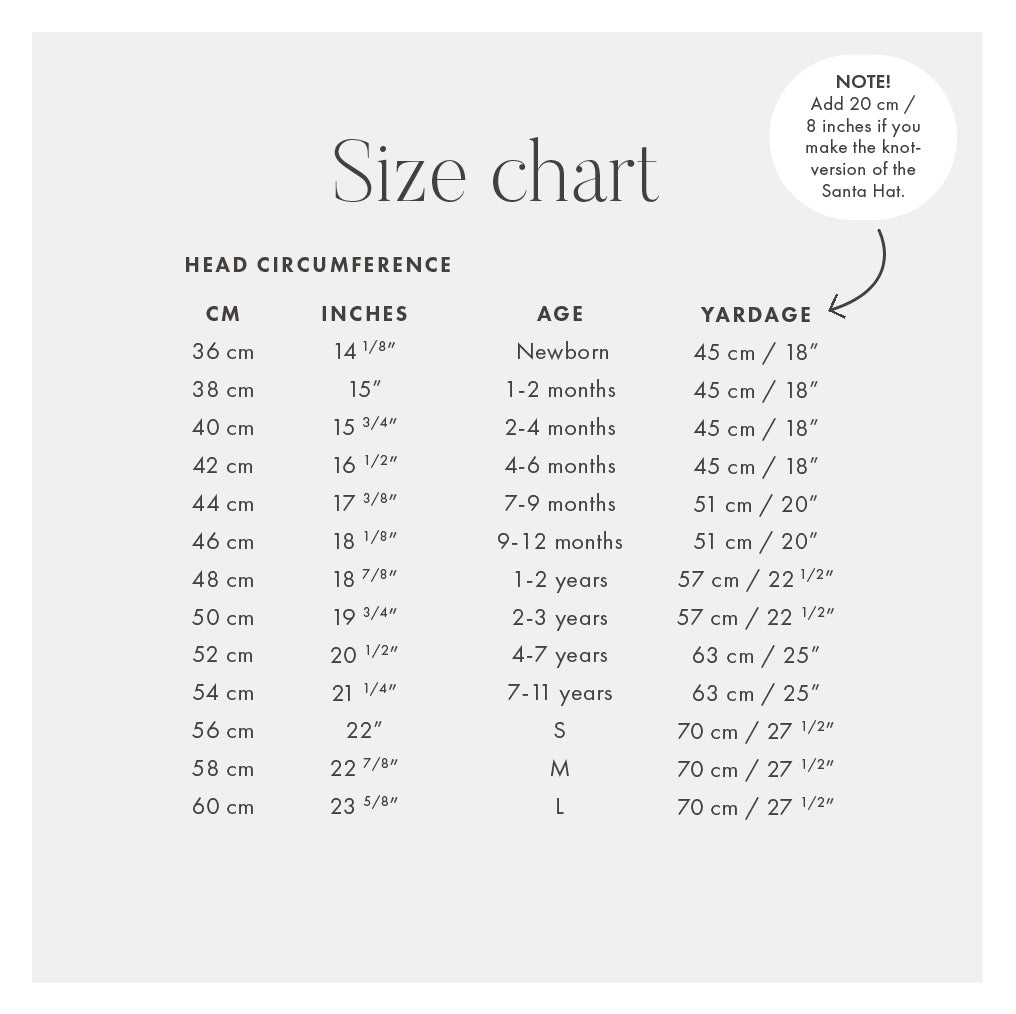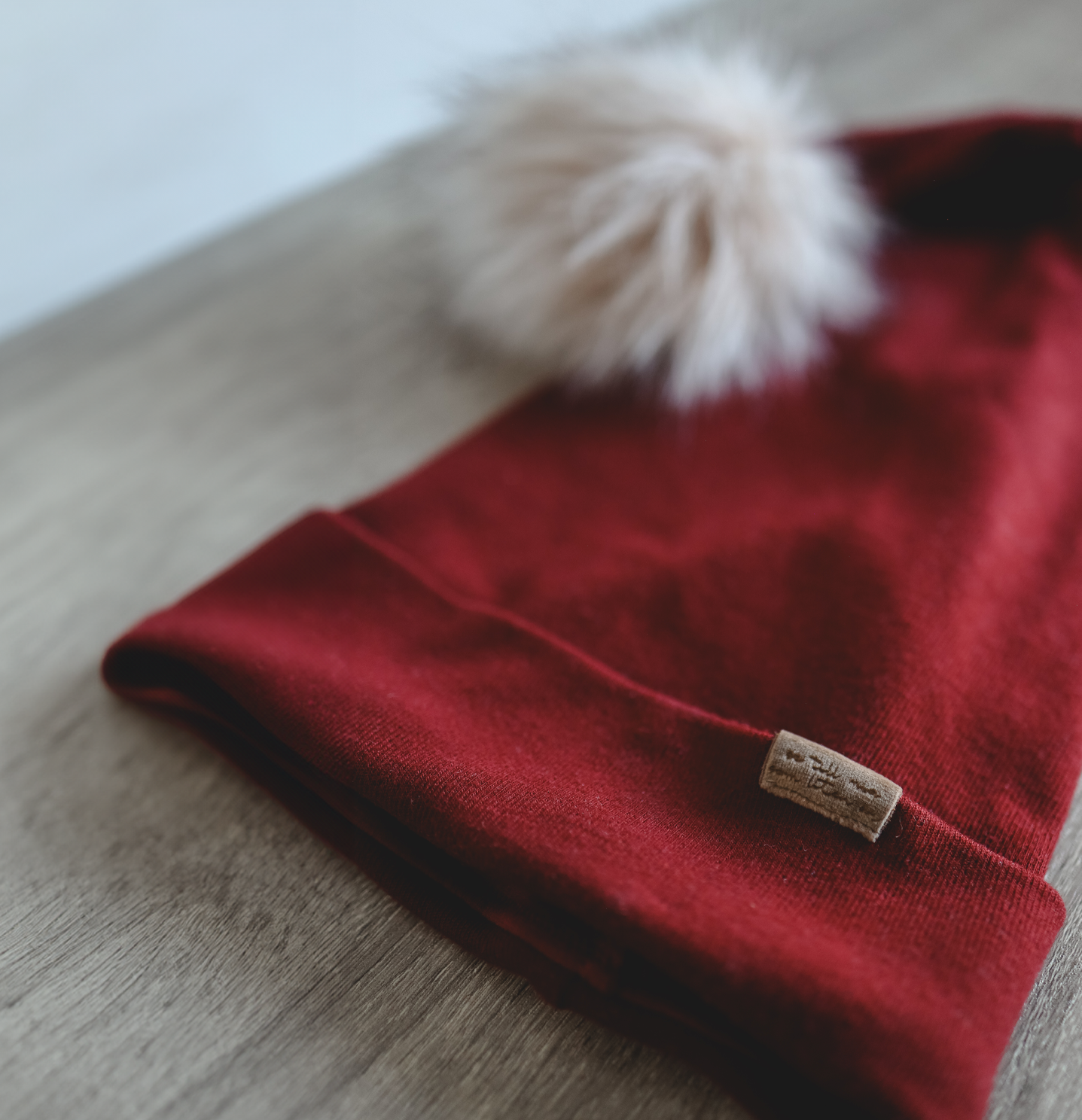Storleksguide & Tygåtgång
Storlekarna på luvan bestäms enligt mottagarens huvudomkrets. Om du syr i ett mindre elastiskt tyg än det som rekommenderas kan du behöva sy en luva i en större storlek.


Sewing patterns on long Santa hats for the whole family.
You need:
Other good things to have: Matching sewing thread, fabric scissors, needles or sewing clips, iron, a sharp slightly coarser hand sewing needle and possibly a sewing marker.
Sewn with ordinary sewing machine .
You can find the length of the hood in each size in the measurement table next to this.
Feel free to buy a little more fabric than the length of the size of hood you intend to sew, as the fabric often shrinks during pre-washing .
If your pompom doesn't have long ribbons to fasten with, you need to sew strong cotton ribbons yourself.
Difficulty: ★ (1 of 3)
This pattern makes a long Santa hat with a turned-up brim that will fit the whole family. The hood is sewn from two parts: hood and cuff. The hood is cut out against the folded edge and has no lining, the cuff is folded double and sewn so that no seams along the cuff are visible.
Feel free to top the Santa hat with a fluffy faux fur pompom. The pompoms I used for the hats in the pictures are 10 cm (children's hat) and 15 cm (adult hat). For a baby hat, I would use a slightly smaller pompom.
The hood can also be decorated with a sewing mark, e.g. my double fold sewing mark in cork fabric.
The Santa hat is sewn in a knitted fabric with 40-50% stretch . You can use this stretch guide to determine the stretch percentage of your fabric.
Storlekarna på luvan bestäms enligt mottagarens huvudomkrets. Om du syr i ett mindre elastiskt tyg än det som rekommenderas kan du behöva sy en luva i en större storlek.


Ett symärke i sammet blir enligt mig som pricken över i på Luvisen. Dessa dubbelvikta med texter som "Se till mig som liten är" och "Be the light" är mina absoluta favvisar att använda på tomteluvor just nu.
You may also like